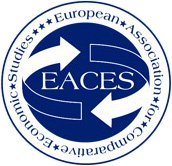The life of János Kornai spanned almost a century. One of the most intensive centuries of the history of Central and Eastern Europe and within that, of Hungary. He was a member of the Hungarian Academy of Sciences, honorary member of numerous academies, Professor Emeritus at Harvard University and Corvinus University of Budapest and one of the most prominent scholars researching the socialist economic system and post-socialist transition.
I would like to remember him very ‘subjectively’, I will recall some personal experiences. When I chose to go to the university of economics (at that time called Karl Marx), I knew very little about the science of economics. This has not changed much during the first year, as we studied courses such as Mathematics, languages, Production technology, Political economy (which had nothing to do with the political economy in the ‘Western sense’, it was rather about the critique of the capitalist system and about the superiority of the socialist system), Economic history etc. In the second year, I joined the László Rajk College for Advanced Studies – an ‘extra-university’ unit, where students, who wanted to know more about economics, who wanted to build their own community and who were not satisfied with what the university of economics offered, gathered.
Under the socialist system, education and research were separated from each other. The so called politically unreliable scholars, such as János Kornai, were banned from teaching at universities. However, at the end of the seventies, he was allowed to give a course at László Rajk College. As a heritage from that, the director of the college, Attila Chikán, who was a friend of Kornai, organised in the eighties and nineties the so-called ‘Shortage’ course, where we went through Kornai’s famous book (The Economics of Shortage) systematically. I joined an intensive version of this course during one of the winter camps of the college. That was the first occasion I could get a hint about logical thinking about the socialist type of economies. The book was based on facts we experienced in our everyday life in a socialist economy and showed that shortages are not randomly appearing and they are an essential part of the socialist economies. It was also obvious then, that thinking it through systematically, the socialist type of economy is not viable.
Next time I could hear mentioning that book and Kornai’s name very often was in Beijing, at the beginning of the nineties, where I visited one of my university classmates. She studied economics there and basically every Chinese student I met there knew the name of Kornai and the ‘Shortage’ book. That showed that even in other parts of the world, with seemingly different culture and different socialism, his ideas were embraced and fruitful. And lastly I would like to mention a personal meeting in 2014, which actually involved EACES as well. During our Budapest conference, he was one of the keynote speakers. He was 86 at that time, still fully following political and economic developments in the world and in Hungary and presenting strong opinions about these. Talking to him was a real honour.
His works were a source of inspiration for many economists in Hungary, in the former socialist economies and abroad. His books helped us understand the nature of the socialist economy and its ‘irreparability’. His theories explained much better the functioning of this system than any other approaches. He helped us realize that socialist economies cannot be improved even through the most careful reforms. Through that he contributed greatly to the intellectual preparation of abandonment of the socialist political and economic system.
To celebrate the central contribution of Janos Konrai to Comparative Economics, a special session in memory of Janos Kornai will be organized at the 2022 EACES conference in Naples.
